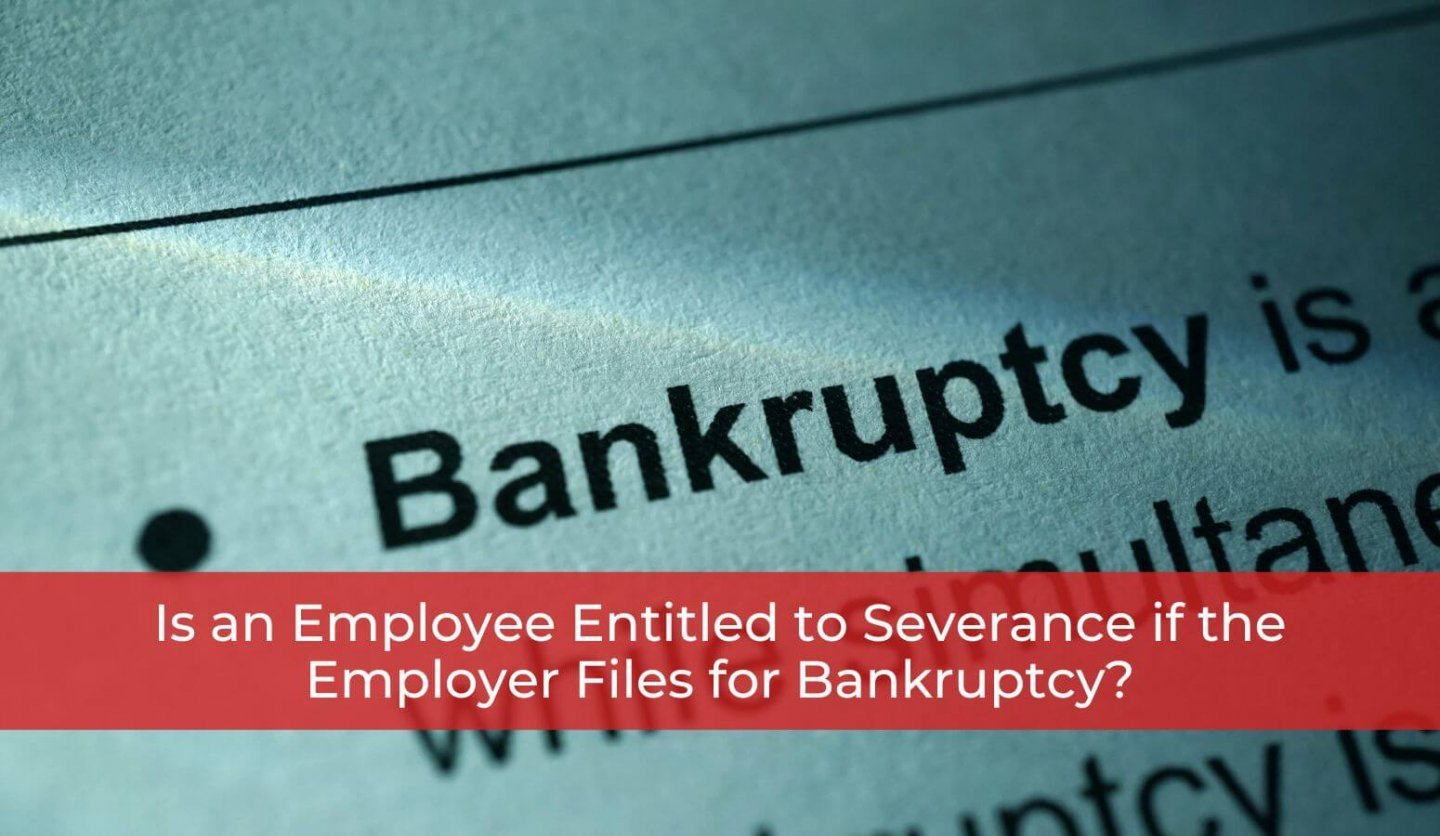
Is an Employee Entitled to Severance if the Employer Files for Bankruptcy?
Over the COVID-19 pandemic, many Canadian businesses were given government assistance and subsidies in an effort to support struggling businesses through those difficult times. As we see the impacts of the pandemic waning, some businesses have struggled to cope with the post-pandemic market and lessening government assistance. What does this mean for employees? Will an employee be entitled to severance if the employer files for bankruptcy?
If an employer is too far in debt to save itself or go through a receivership, it may be forced to file for bankruptcy. This can be an incredibly stressful time for employees, who have now lost their jobs and face uncertain prospects for recovering severance payments. Some employees may even be owed unpaid wages that accrued prior to the bankruptcy as well.
Bankruptcy does not excuse employers from paying severance and unpaid wages owed to employees. However, the reality may not be very pleasant for employees in these circumstances. An employee becomes an unsecured creditor to its bankrupt employer, and must get in line behind other creditors, such as taxes owed to the government and debts held by secured creditors like banks.
The federal government has put some protections in place for employees in these circumstances. The Wage Earner Protection Program (WEPP) assists employees who worked for bankrupt companies and are owed outstanding wages. WEPP will pay a limited amount of unpaid wages to the date of the bankruptcy or receivership. For employees that were formally terminated, WEPP will generally pay out any termination pay, and severance owed as well. There are important timelines to remember for the WEPP program, so employees should be sure to speak with an employment lawyer as soon as possible to understand their rights and obligations.
If you or someone you know is dealing with a bankrupt employer, it is important to speak with an experienced employment lawyer to understand your workplace rights. The experienced employment lawyers Whitten & Lublin are happy to provide insight and advice into your specific circumstances. If you are looking for employment lawyers and would like more information about what Whitten & Lublin can do for you, please contact us online or by phone at (416) 640-2667.
Author: Rachel Patten



